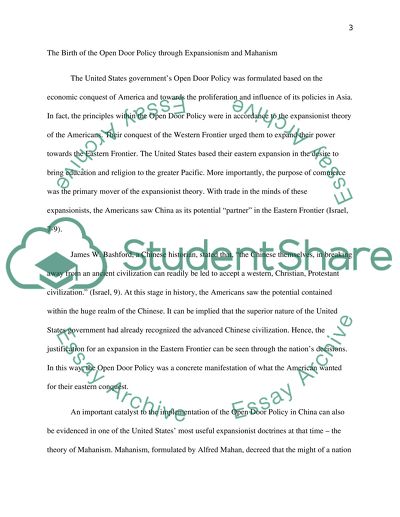Cite this document
(“Open Door Policy US & China, Roosevelt Era Research Paper”, n.d.)
Retrieved from https://studentshare.org/family-consumer-science/1415379-open-door-policy-us-china-roosevelt-era
Retrieved from https://studentshare.org/family-consumer-science/1415379-open-door-policy-us-china-roosevelt-era
(Open Door Policy US & China, Roosevelt Era Research Paper)
https://studentshare.org/family-consumer-science/1415379-open-door-policy-us-china-roosevelt-era.
https://studentshare.org/family-consumer-science/1415379-open-door-policy-us-china-roosevelt-era.
“Open Door Policy US & China, Roosevelt Era Research Paper”, n.d. https://studentshare.org/family-consumer-science/1415379-open-door-policy-us-china-roosevelt-era.


